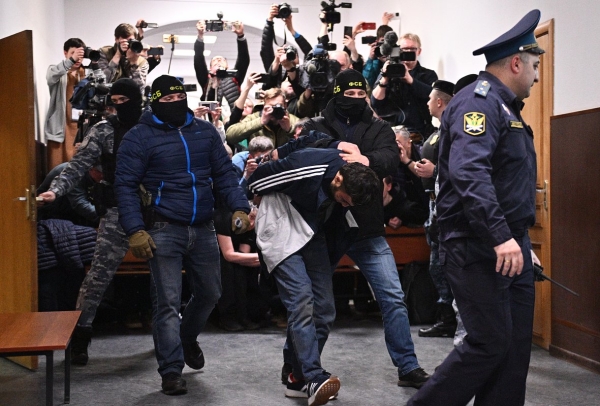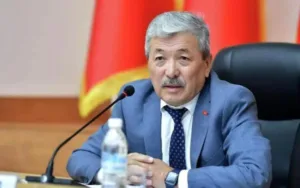
A high-profile terrorism trial opened in Moscow on August 4 as 19 individuals face charges related to the March 2024 terrorist attack at Crocus City Hall, which left 149 people dead and more than 500 injured. The case is being heard by the Second Western District Military Court at the Moscow City Court building.
The opening session is public, but subsequent hearings will be held behind closed doors, due to the presence of classified materials and ongoing investigations involving suspects still at large, according to TASS.
Main defendants: four alleged gunmen
Among the accused are four Tajik nationals – Dalerjon Mirzoyev, Saidakrami Rajabalizoda, Faridoun Shamsiddin, and Muhammadsobir Faizov – believed to be the direct perpetrators. Investigators allege they arrived at the concert venue, opened fire, set the concert hall on fire, and fled the scene. The entire attack reportedly lasted just 18 minutes.
The defendants come from working-class backgrounds—employed in construction, taxi services, and barbershops. Faizov, the youngest at 20, is alleged to have family links to extremist groups, with his brother suspected of acting as a liaison and currently believed to be hiding in Turkey.
Network of alleged accomplices
Fifteen additional defendants face charges of providing logistical support, including renting apartments, supplying weapons, transferring funds, and arranging transportation and communication tools.
Some of the accused voluntarily contacted police after recognizing a vehicle they sold in footage from the attack. Despite this, they too were charged with aiding terrorism.
Investigators claim the suspects were part of three cells of the Islamic State affiliate “Vilayat Khorasan” operating in Russia, allegedly established to carry out terrorist acts.
Controversial allegations and “Ukrainian connection”
Russian authorities have advanced a dual narrative: that the attack was carried out by Islamist militants from Afghanistan but with support from foreign intelligence services acting in Ukraine’s interest. This claim, initially presented in public statements, was formally included in the indictment only in March 2025.
Although one defendant's confession seemingly supports this version, human rights groups have raised concerns over the credibility of such statements, citing visible signs of torture on several detainees.
The alleged masterminds, A.I. Bekov and A.M. Hikmatov, remain at large, with no public records of international arrest warrants or extradition requests.
Vilayat Khorasan had not previously carried out attacks inside Russia, although it claimed responsibility for a 2022 bombing at the Russian embassy in Kabul. Some analysts view the claims against Ukraine as politically motivated, while ISIS representatives have denied foreign involvement, accusing Moscow of deflecting blame.
Detention conditions raise alarm
Images of the accused in court sparked further controversy. One defendant appeared with a shut eye and tape marks, another had a severed ear, and a third arrived in a wheelchair. Despite these signs, no investigation into possible torture has been launched.
Although the trial is officially public, terrorism cases allow for partial closure of hearings. The defendants' earlier requests to dismiss the case or have it tried by a jury were denied.
Language barriers and the scale of the case
Due to language difficulties, 16 translators have been assigned to assist in interrogations and court proceedings, translating between Tajik, Ingush, English, and Russian.
The Crocus City Hall attack occurred on March 22, 2024, just before a concert by the rock band Piknik. Armed assailants stormed the venue, opened fire, and set the building ablaze. The suspected gunmen were apprehended the following morning in Russia’s Bryansk region.
The trial involves all 19 individuals, charged as either direct perpetrators or collaborators in one of the deadliest terrorist attacks in modern Russian history.




